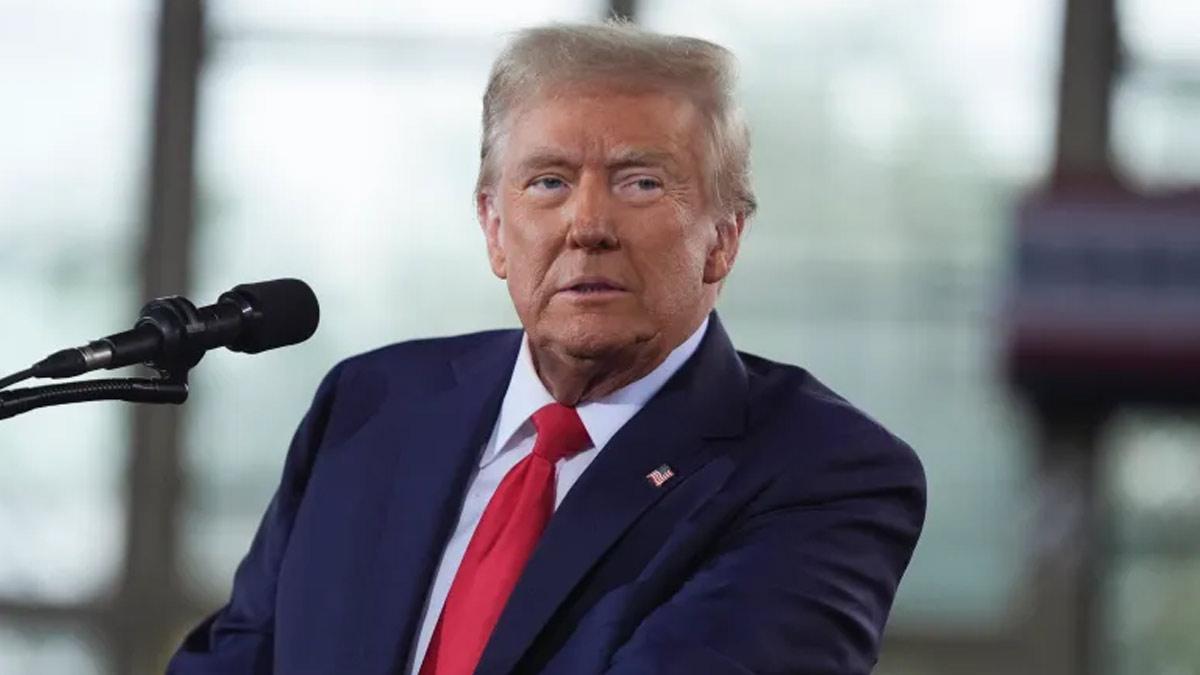U.S. President Donald Trump has indicated his willingness to meet with Russian President Vladimir Putin in Saudi Arabia as part of moves to end the Ukraine War.
In an interview with TV journalists in Washington, Trump disclosed that he had spoken with Putin over the phone early on Wednesday and that several meetings were planned, with the first one to be held in Saudi Arabia.
“We expect that he’ll come here, and I’ll go there [to Russia],” Trump added.
This call marked their first official conversation since Trump began his second term. He also spoke separately with Ukrainian President Volodymyr Zelensky.
Trump subsequently revealed on Truth Social that he had assigned a group of negotiators, including Secretary of State Marco Rubio and CIA Director John Ratcliffe, to negotiate a deal to conclude the war on behalf of the U.S. government.
He further disclosed that there would be a U.S. delegation to the next Munich Security Conference, and Vice President J.D. Vance and Rubio would head the sessions. The conference is a primary international platform on which policymakers get to discuss priority issues pertaining to foreign affairs, defense, and security.
On Truth Social, Trump highlighted the pressing necessity to "stop the millions of deaths from the war with Russia/Ukraine" and wrote that both Putin and Zelensky "want to make PEACE," and added, "We discussed a variety of topics related to the war."
Trump had continually promised, throughout his campaign, to resolve the Ukraine War in 24 hours of being president. But with the complexities surrounding the war, it has become difficult to have an immediate resolution. His latest phone conversations with Putin and Zelensky, and creating a negotiation model, represent a belated but important step towards that end.
Meanwhile, U.S. Defense Secretary Pete Hegseth was quoted as stating that bringing Ukraine back to its pre-2014 borders prior to the annexation of Crimea by Russia was "unrealistic." Hegseth also made it formal that Kyiv will not be a member of NATO and that the U.S. would not send troops into a NATO peacekeeping force.
The Trump-Putin summit in Saudi Arabia also presents an opportunity to talk about the Gaza war since Riyadh is a leading power in the region.
Trump, in the course of his campaign, had claimed that Hamas would achieve a ceasefire in Gaza and release Israeli hostages prior to him entering office. Although a ceasefire has been achieved, the situation is still precarious. Trump has also generated controversy by proposing that the U.S. take over Palestinian lands and displace the local population. The Saudi meeting may be used as a platform to stabilize the ceasefire deal.
However, timing limitations due to scheduling will possibly restrict when the meeting would be held because Ramadan, an Islamic holy fasting month, takes place later in the month.
If Trump-Putin sits down, the first direct exchange of words among the two nations' leaders would happen in over three years. This is in contrast to American diplomacy under previous President Joe Biden, whose last such meeting with Putin was 2021 before stating, "Putin cannot remain in power.
In his Truth Social post, Trump was conciliatory towards Russia, referencing U.S.-Russia cooperation during World War II.".
"With Putin, we both discussed the strengths of our countries and the tremendous advantages we could one day gain by cooperating," he stated.
The close relationship between Russia and China—strengthened by Moscow's diplomatic isolation since its invasion of Ukraine—continue to be a source of concern for the U.S. To undermine that alliance has become a strategic imperative for Washington.
A second issue in U.S.-Russia relations of immediate concern is the fate of the New Strategic Arms Reduction Treaty (New START), which is due to expire next year.
This week, Russian Deputy Foreign Minister Sergei Ryabkov admitted to doubt over renewal of the treaty. New START places tough constraints on the number of deployed strategic nuclear warheads, as well as the deployment of ballistic missiles and bombers.
Read also| NASA Announces Early Return for Sunita Williams and Butch Wilmore to Earth


















